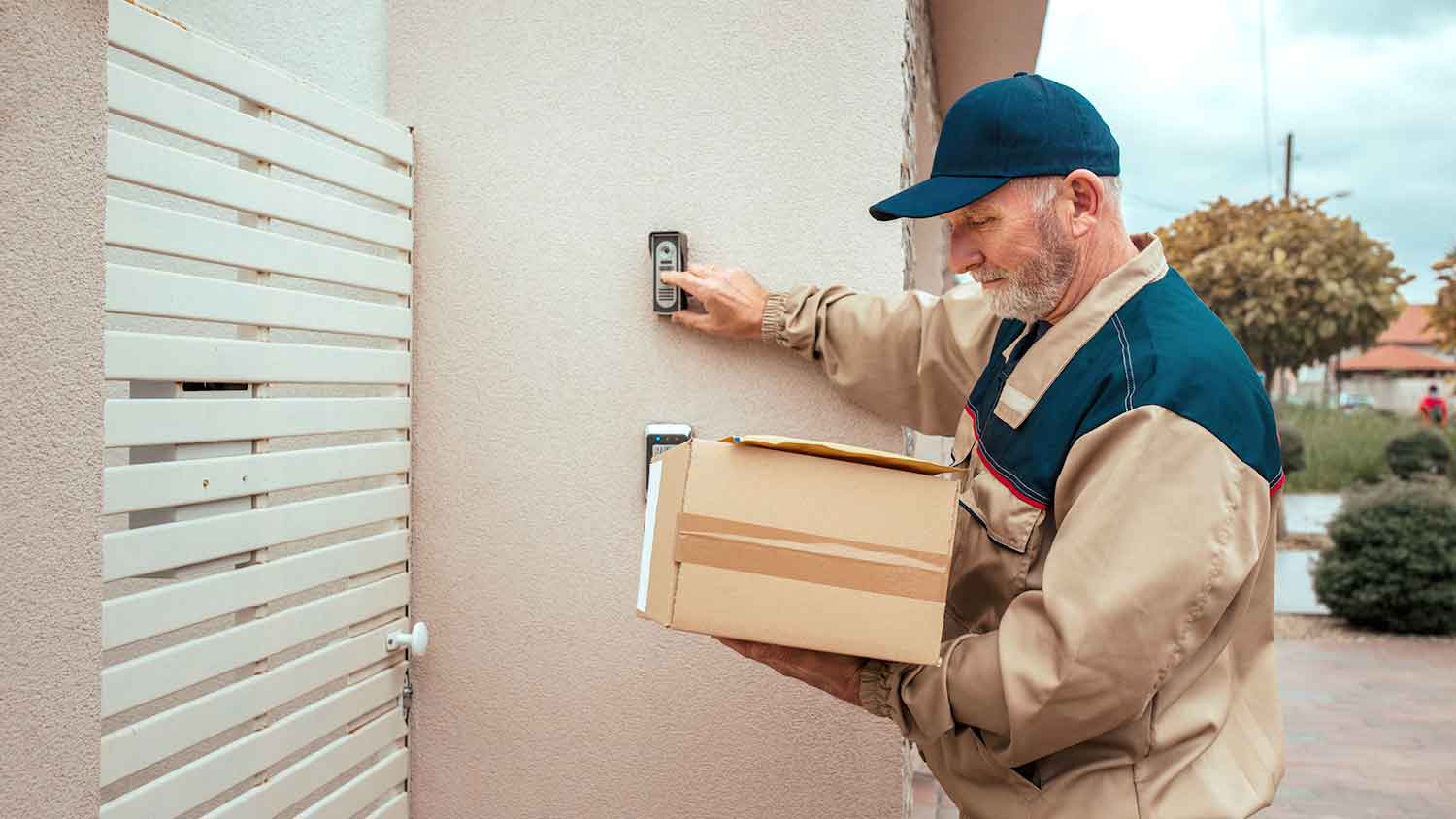Why Is My Dishwasher Making A Grinding Noise?
Quiet things down with these dishwasher troubleshooting tips
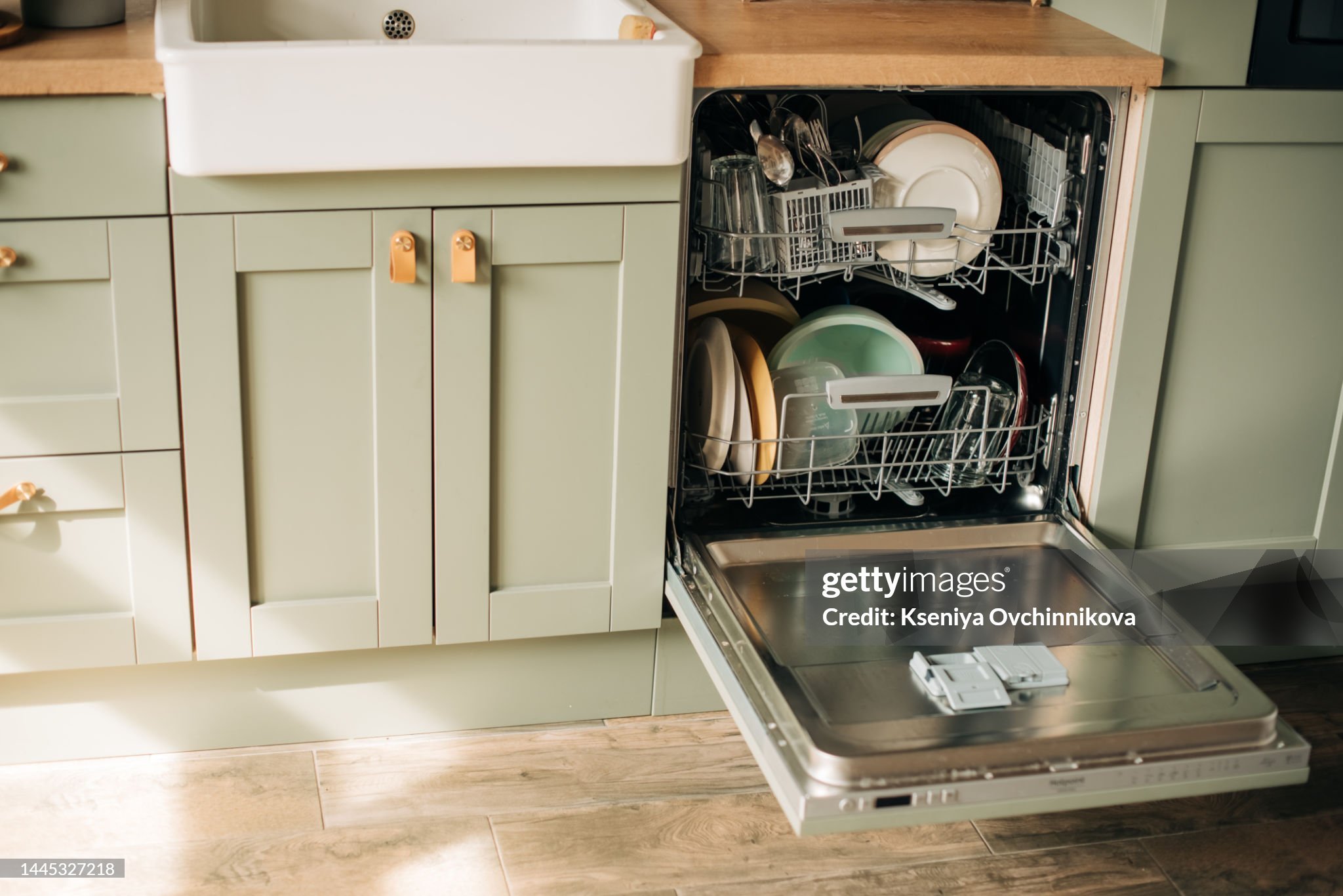

Dishwasher grinding noises are often caused by clogs in the spray arms, pump, or valves.
Worn-out parts are another common cause of a noisy dishwasher.
Regularly clean and inspect your dishwasher to avoid clogs and damaged parts.
Replacing a dishwasher costs around $1,200 on average.
You’ve just finished cleaning up after a nice meal, and you’re settling in for some hard-earned Netflix time when you realize: Your dishwasher is making a weird noise, and you can hear it from the couch. Dishwashers have many parts, but with a little know-how, you can troubleshoot and fix this annoying issue. Here are seven reasons why your dishwasher is making a grinding noise and what you can do about it.
1. Clogged Spray Arms
Dishwashers use spray arms to clean the dishes, and sometimes these arms become clogged with flyaway food particles or hard water buildup.
How to Fix It
To clean the spray arms, use a wire or toothpick to push debris free of the holes. Rinsing your dishwasher with vinegar or investing in a water purification system can prevent the spray arms from building up with hard water buildup.
2. Blocked Pump
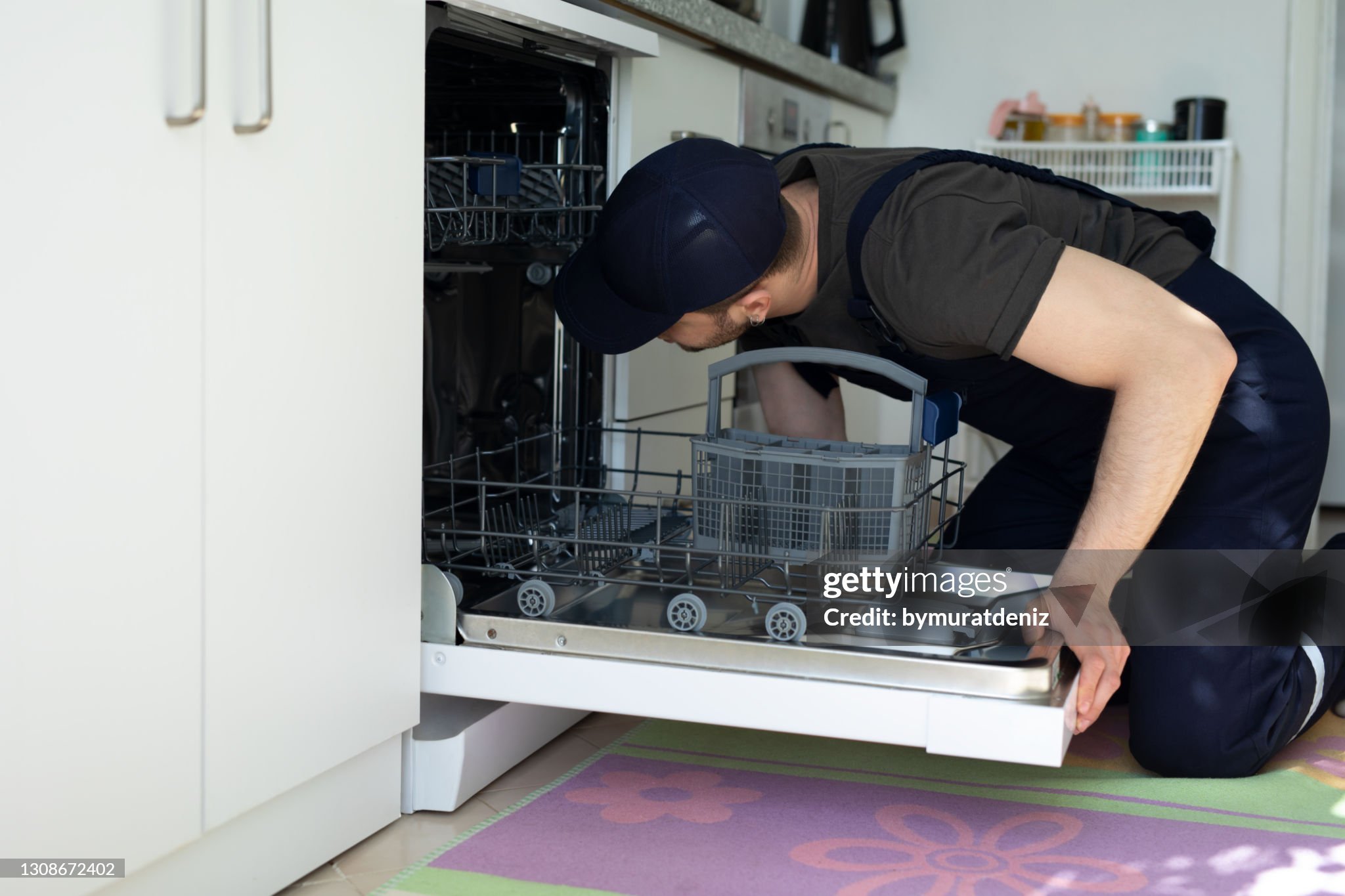
At times, small utensils or food pieces may become stuck in the pump or chopper blade, causing a loud grinding sound.
How to Fix It
Examine the bottom of your dishwasher for any items that don’t belong there and remove them cautiously.
3. Plugged Inlet Valve
Another place where your dishwasher can get clogged and cause a grinding sound is in the inlet valve. Homes with hard water are especially susceptible to limescale buildup that can plug the valve and make it difficult for water to flow through the appliance.
How to Fix It
Unclog the inlet valve by disconnecting the hose, cleaning the sediment filter if you have one, and brushing away debris and sediment.
4. Blocked Chopper Blade
The chopper blade rotates at the bottom of your dishwasher to break up food and prevent clogs in the drain. If the blade can’t operate due to a clog, a piece of cutlery, or broken debris, it can cause the machine to grind.
How to Fix It
Remove debris from the chopper blade to see if that fixes the issue before replacing the part.
5. Faulty Motor Bearings
If water gets into the motor bearing of your dishwasher, it can corrode the metal and cause a grinding sound. Keep in mind that not all dishwasher types have motors that require lubrication, as many have sealed bearings to prevent water damage.
How to Fix It
To prevent corroded motor bearings, regularly lubricate your dishwasher according to the manufacturer's instructions. If your motor bearings are badly rusted, you may need to replace them.
6. Worn-Out Pump Assembly
Part of your dishwasher contains two pumps: a drain pump and a circulation pump. If either one of these pump assemblies gets worn out or clogged, it can cause grinding noises.
How to Fix It
Check for debris and clean the pump to see if that fixes the problem. If you notice wear and tear, you’ll need to replace the pump.
7. Loose Dishes
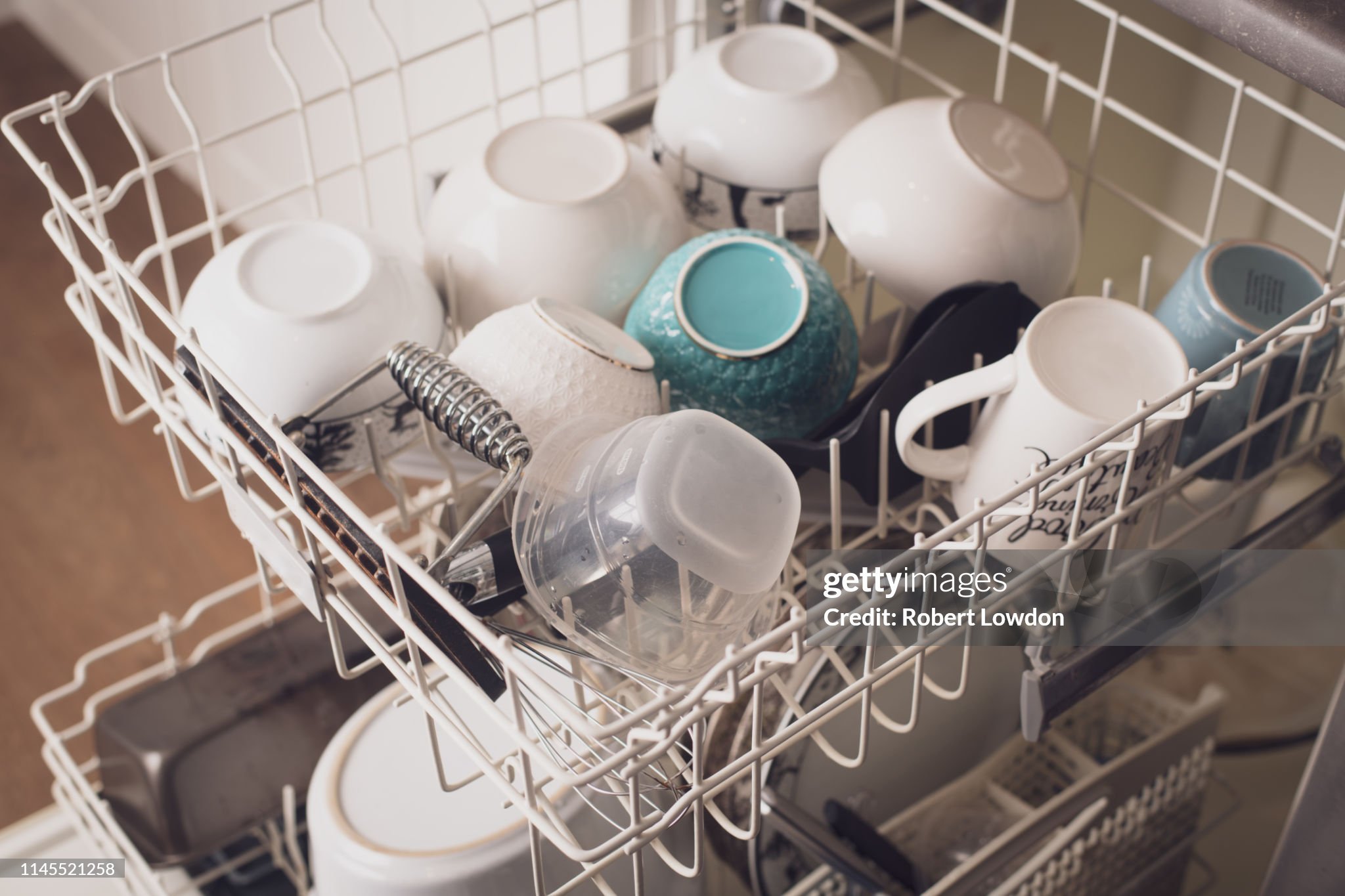
Grinding from loose dishes can also cause your dishwasher to make a loud noise. Fortunately, this is an easy-to-fix user error.
How to Fix It
The best way to fix this problem is by properly filling your dishwasher (consult your manual for tips) and looking for loose dishes at the bottom.
When to Call a Pro
After investigating and trying out these DIY solutions, you may need to hire a local dishwasher repair pro to troubleshoot or replace the dishwasher if your unit continues to make grinding noises. The average dishwasher installation costs $1,000 to $1,500, depending on the type of dishwasher and ease of access.
How to Prevent Your Dishwasher from Making a Grinding Noise
Prevention measures can go a long way in extending your dishwasher’s life, saving you on repair costs and the stress of having lackluster, partially cleaned dishes. Here are some ways to maintain your dishwasher and keep issues from arising prematurely:
Routinely clean your dishwasher using white vinegar to help loosen clogs and keep them away.
Sprinkle baking soda at the bottom of the dishwasher and run a quick cycle.
If your dishwasher shares the same plumbing as your garbage disposal, clean the garbage disposal simultaneously to keep the whole plumbing unit clean.
Replace broken parts as soon as you notice them.
Regularly inspect and clean the filter.
Load dishes according to the instructions for your dishwasher brand.
Avoid overloading your dishwasher.
Use the correct dishwasher detergent—and the right amount.
Regularly use your dishwasher to keep buildup from collecting.
Frequently Asked Questions
The average dishwasher lasts between 10 and 12 years, however, some dishwashers can last 15 years or more. Just how long your dishwasher lasts depends on how well you maintain it, the quality of the parts, how frequently you use it, your water hardness level, and whether or not you follow dishwasher best practices when loading your appliance.
Not all dishwasher noises are signs of trouble. Dishwashers naturally make sounds while operating, so it's important to differentiate between normal sounds and problematic ones. Swishing, sloshing, and humming sounds could all be signs of a healthy dishwasher. Pounding, drumming, grinding, and rattling sounds, on the other hand, could indicate that there's a problem.



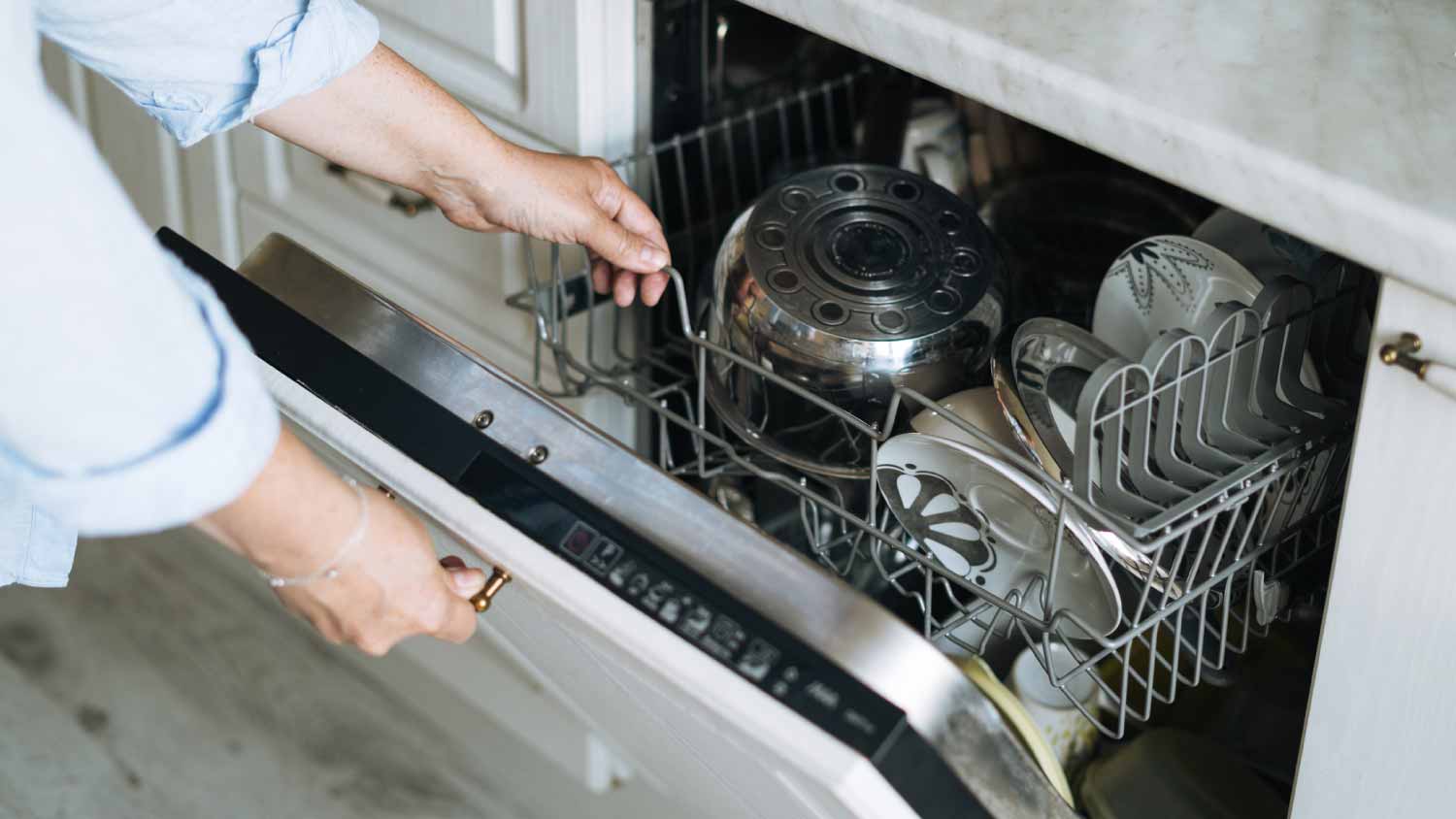
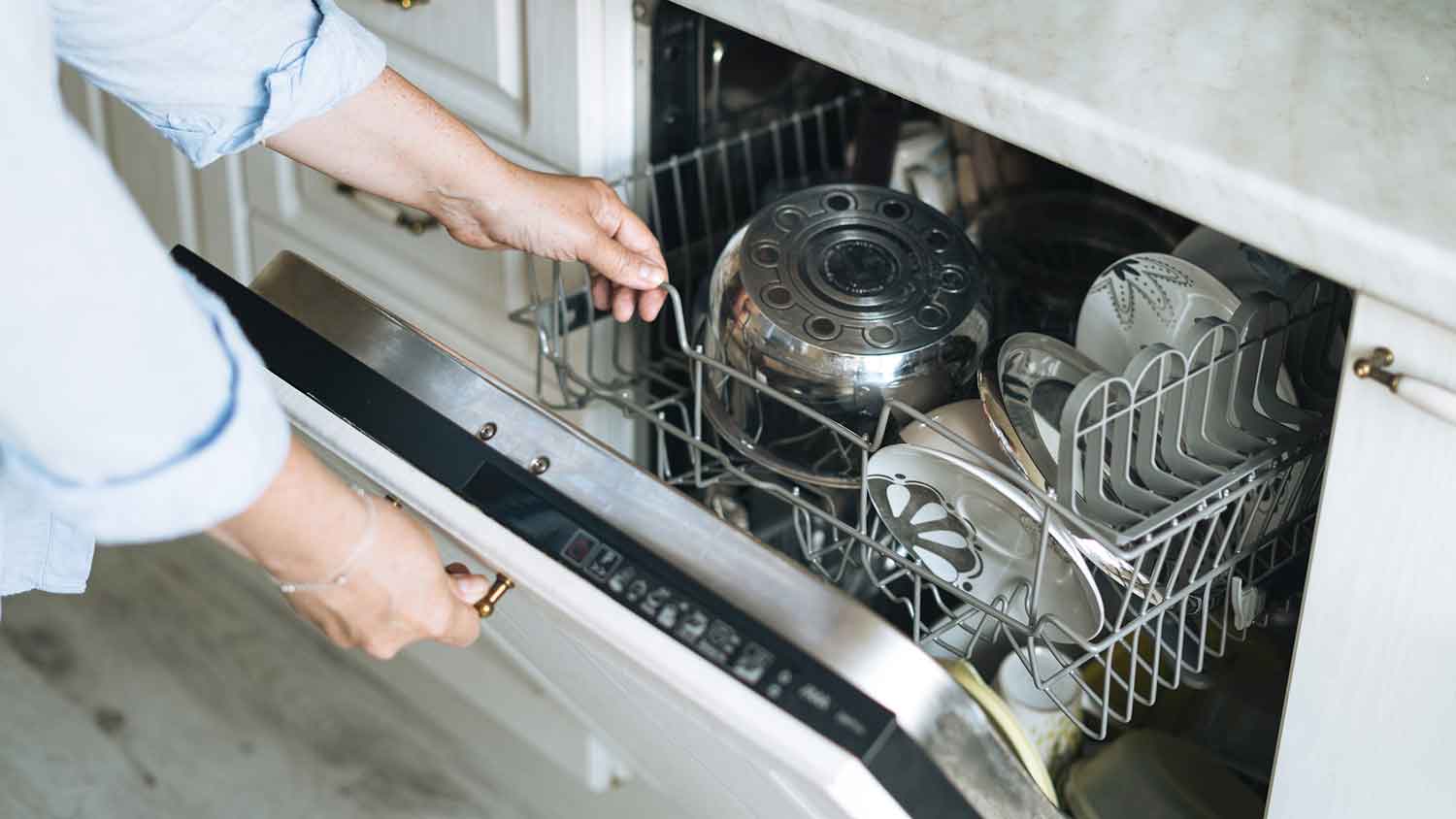
- Appliance Repair Companies
- Washing Machine Repair
- Dryer Repair
- Refrigerator Repair
- Dishwasher Repair
- Oven Repair
- Wood & Pellet Stove Repair
- Freezer Repair Services
- Wood Stove Services
- Gas Stove Repair
- Emergency Appliance Repair Companies
- Ice Maker Repair
- Gas Appliance Repair
- GE Appliance Repair
- GE Refrigerator Repair
- GE Dryer Repair
- GE Dishwasher Repair
- GE Washing Machine Repair
- Samsung Appliance Repair
- Samsung Refrigerator Repair
- Samsung Dryer Repair
- Samsung Washer Repair
- Samsung Dishwasher Repair
- Samsung Oven Repair
- Whirlpool Repair
- Whirlpool Refrigerator Repair
- Whirlpool Washer Repair
- Whirlpool Dryer Repair
- Whirlpool Oven Repair
- Maytag Appliance Repair
- Maytag Refrigerator Repair
- Maytag Washer Repair
- Maytag Dryer Repair
- Maytag Dishwasher Repair
- Kitchenaid Appliance Repair
- Kitchenaid Oven Repair
- Kitchenaid Refrigerator Repair
- Kenmore Appliance Repair
- Kenmore Dishwasher Repair
- Kenmore Washer Repair
- Kenmore Dryer Repair
- LG Refrigerator Repair
- Bosch Appliance Repair
- Kenmore Refrigerator Repair
- LG Appliance Repair Services
- GE Microwave Repair
- Electrolux Appliance Repair
- Electrolux Washer Repair
- Kitchenaid Dishwasher Repair Services
- Wood Stove Inspection
- Dishwasher Installation
- Trash Compactor Repair



